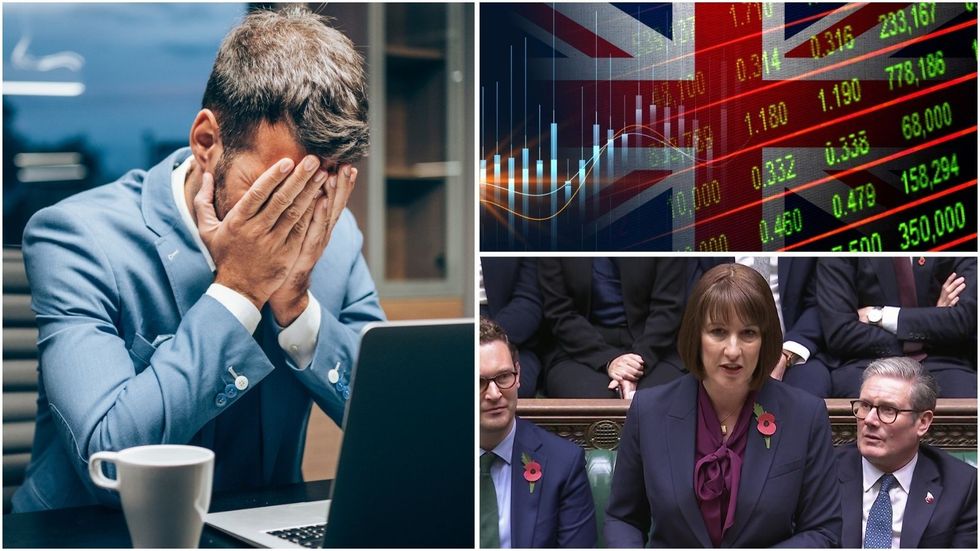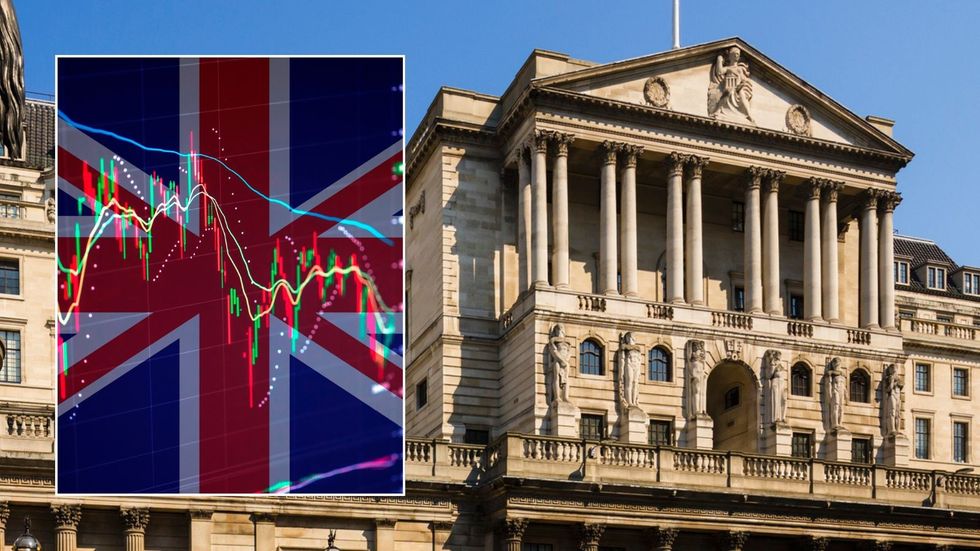Britons react to shrinking economy
GB NEWS
The CPI rate has jumped to 2.6 per cent for the 12 months to November in a move that could raise interest rates
Don't Miss
Most Read
Trending on GB News
Inflation in the UK has risen to its highest level in eight months in a blow to Chancellor Rachel Reeves and the Labour Government's record on the economy. Figures from the Office for National Statistics (ONS) reveal the consumer price index (CPI) rate jumped to 2.6 per cent for the 12 months to October 2024.
These figures come ahead of the Bank of England's base rate announcement later this week with the Monetary Policy Committee (MPC) expected to keep interest rates at their current level.
According to the ONS, inflation jumped by 0.1 per cent on monthly basis, CPI rose by 0.1 per cent, compared with a 0.2 per cent drop in November 2023. Notably, the largest contributing factor to this hike in the CPI rate came from transport costs over the 12-month period.
Furthermore, core CPI increased by 3.5 per cent in the 12 months to November 2024, a slight rise from 3.3 per cent in October. On top of this, the CPI goods annual rate rose from negative 0.3 per cent to positive 0.4 per cent, while the CPI services annual rate was unchanged at five per cent.
Reacting to the ONS figures, Reeves said: “I know families are still struggling with the cost of living and today’s figures are a reminder that for too long the economy has not worked for working people.
Do you have a money story you’d like to share? Get in touch by emailing money@gbnews.uk.

Inflation has risen once again
GETTY“Since we arrived real wages have grown at their fastest in three years. That’s an extra £20-a-week after inflation. But I know there is more to do. I want working people to be better off which is what our Plan for Change will deliver."
Shadow Chancellor Mel Stride said: “The Chancellor has made a series of irresponsible and inflationary decisions which, as the independent Office for Budget Responsibility said, will leave inflation higher than it was forecasted in March."
"These figures mean higher costs in the shops, less money in working people’s pockets and risks keeping mortgage rates higher for longer," Stride added.
Grant Fitzner, the ONS’s chief economist, said: "Inflation rose again this month as prices of motor fuel and clothing increased this year but fell a year ago.

Britons have been forced to contend with inflation hiked prices
GETTY"This was partially offset by air fares, which traditionally dip at this time of year, but saw their largest drop in November since records began at the start of the century."
Tomorrow (December 19), the Bank of England's MPC committee members will meet to vote on whether to cut, raise or maintain the base rate which currently sits at 4.75 per cent.
While savers have benefited from a period of high interest rates during the cost of living crisis, borrowers have been detrimentally impacted, notably those in debt and mortgage holders.
According to Chetwood Bank's CEO Paul Noble, "all eyes" will be on the central bank this week following the latest hike to inflation.
He shared: "It comes as no surprise following the uncertainty surrounding October’s budget announcement and could be a sign of a prolonged period of inflation above the government’s target. All eyes will now be on the Bank of England’s interest rate announcement on Thursday to see how they react to this news.”
“With inflationary pressure still unrelenting, consumers must be more proactive than ever about managing their money – missing out on competitive rates and leaving funds in old savings accounts, or their current account, is just leaving money on the table."
LATEST DEVELOPMENTS:

Earlier this year, the Bank of England voted to cut interest rates but experts are warning another hike could be introduced
GETTYMonica George Michail, an associate economist at the National Institute of Economic and Social Research (NIESR), shared her prediction ahead of the Bank of England's announcement.
She said "We expect the MPC to keep rates on hold in tomorrow's meeting, and to gradually cut rates in 2025.
"However, we think the Bank will remain cautious given elevated wage growth, global uncertainty around the Trump presidency, and inflationary pressures introduced in the latest budget.
"Interest rates may therefore remain higher for longer than previously thought."








